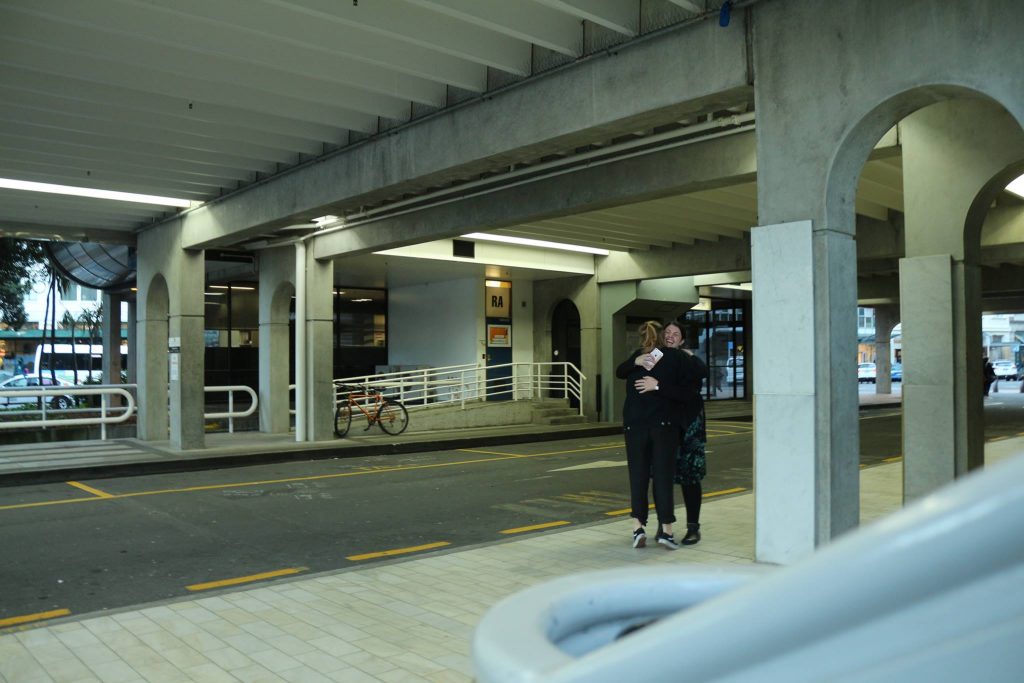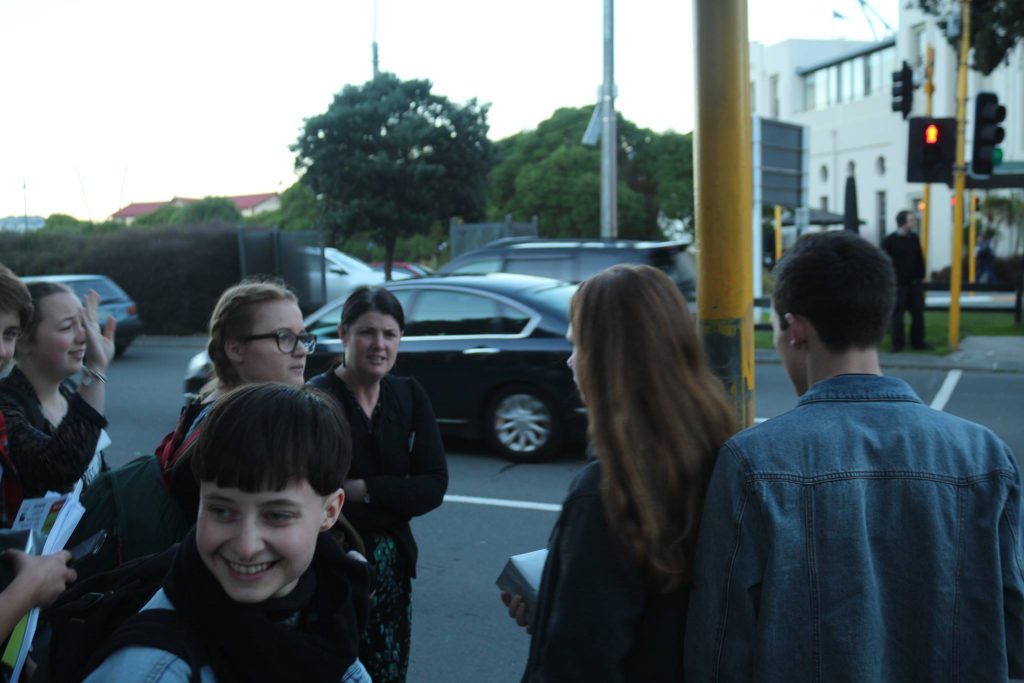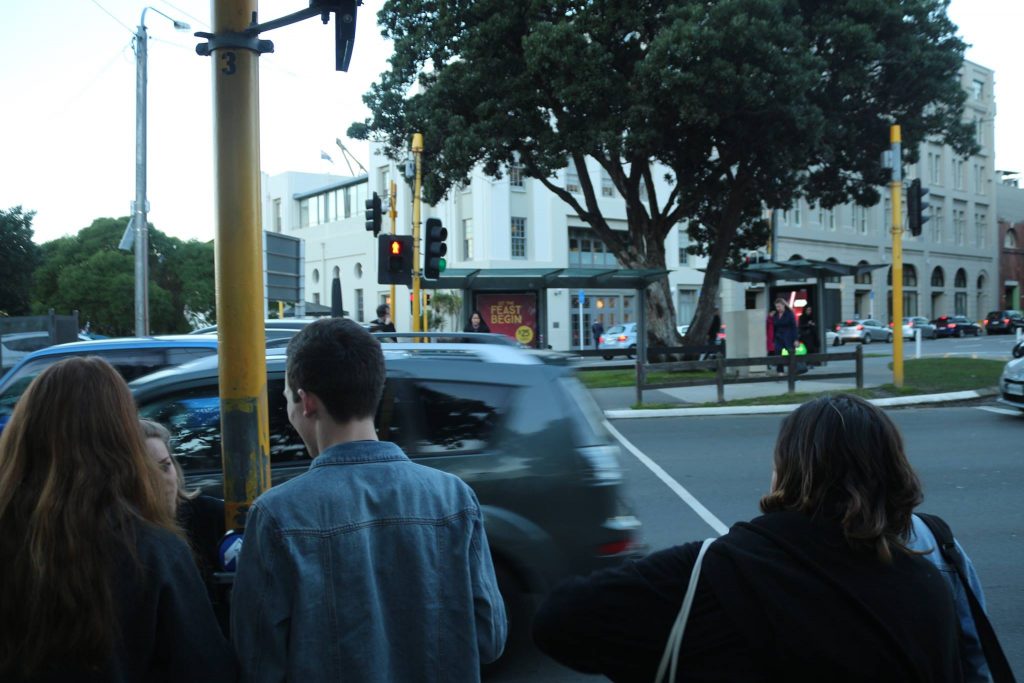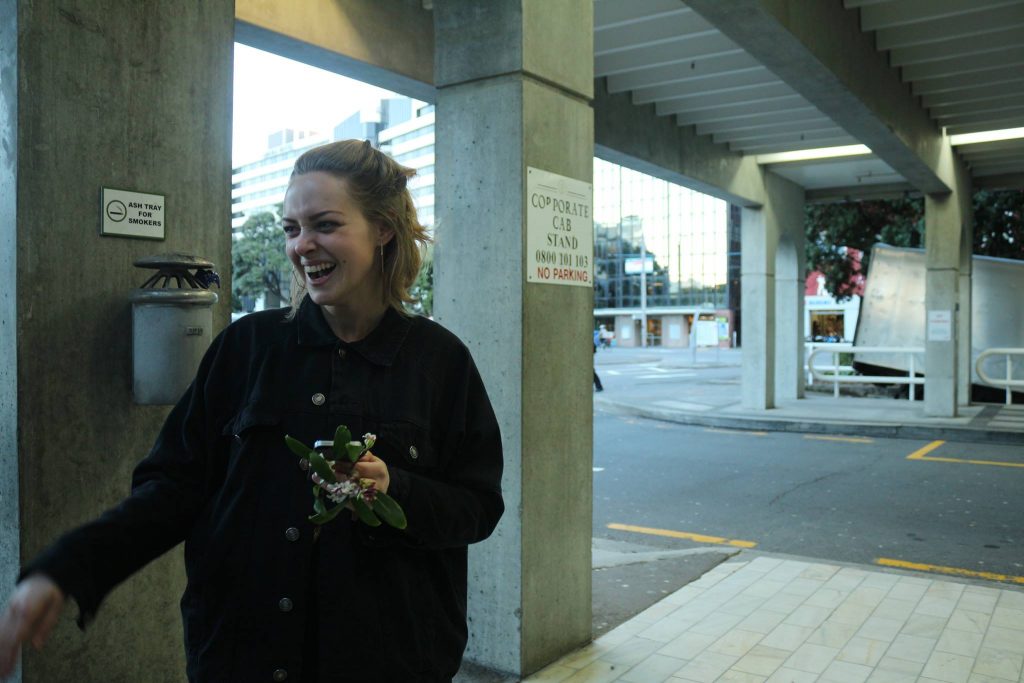In this interview we ask seven teenagers from Sticks ‘n Stones – a student led project focused on taking positive action online to reduce cyberbullying – what they think of the internet.
James, 17, male
What is the best and worst thing about the internet?
Best thing about the internet is that you can be connected with anyone around the world with a click of a mouse and also access anything you would have had to find in the library. It is a cool nifty wee thing.
How can people be taught to be more empathetic online?
By thinking about the fact that despite not seeing the people online, it’s all real life and real people get affected by what you say. Treat it like you’re saying whatever you say online to that person face-to-face.
What does internet utopia look like to you?
What is internet utopia to me? Where there is no ads on websites and where everyone respects each other and follows the golden rules. (Golden rules still to come).
Why should young people (instead of adults) teach cyber safety classes?
Young people are more likely to listen to other young people, and have a lot more knowledge in general about the latest apps and life online than adults could have.
Should sexting be added to sex education classes?
Yes, it is something all of us experience and it needs to be talking about.
Why has it taken so long to have a harmful digital communication act?
Because of democracy and also our politicians being so damn frikin slow. It annoys me.
If someone is being bullied online, what can they do?
Talk to someone about it, get help rather than keep it to themselves, get support from people they trust.
Sarah, 16, female
What is the best and worst thing about the internet?
Best thing about the Internet is its convenience and speed, you can find out almost anything instantly. The worst thing is the anonymous comments that seem to be on every form of social media around, or not even the anonymous comments just the snarky comments left by people who don’t have to say it to your face with confidence but can manage to do it behind a screen.
How can people be taught to be more empathetic online?
I think people can be taught to be more empathetic online by showing them consequences other than situations shown to us using scare tactics.
What does internet utopia look like to you?
My internet utopia looks like a place where there is no anonymity and active monitoring of sites for hurtful posts. This means not a machine taking down a post if it has a bad word in it but real people checking the reported posts, meaning that there would be better responses to reported content and hopefully appropriate outcomes rather than the oh so familiar “…does not think that this post violates any of the sites guidelines, if you’d like to take further action message the poster”.
Why should young people (instead of adults) teach cyber safety classes?
Young people should teach online safety classes because they are more likely to be aware of the latest online trends and schemes. This means that they are more approachable to teenagers who are having trouble on line as well as being someone that other young people are more likely to listen to.
Should sexting be added to sex education classes?
Sexting should definitely be added to sex education classes, it seems to be getting more popular and for younger people.
Why has it taken so long to have a harmful digital communication act?
It’s taken so long for online life to be taken seriously and the issues to be acknowledged, this is why it’s taken so long to get a harmful digital communications act. Online used to be something you would just turn off to make the problems go away, but it’s been recognised that there are real risks associated with being online and only recently.
If someone is being bullied online, what can they do?
If someone is being bullied online they should tell someone, friends or family, because this way they have support if needed and they aren’t going through it alone. Keep screenshots of the bullying as evidence incase things get worse and don’t retaliate.
Photograph by Elise Lanigan, Salient TV of Sophie meeting Karla Sanders.
Tip, 19, male
What is the best and worst thing about the internet?
Best thing is that it’s an almost unlimited resource to expand your knowledge and skills and you can literally learn about anything because its a lot more accessible than it usually is in ~~real life~~. Worse thing is these resources being out of reach from people due to all the different circumstances.
How can people be taught to be more empathetic online?
In my opinion, people seeing that the internet is a lot closer to real life than people think would really cut out a lot of the gross stuff.
What does internet utopia look like to you?
Where people can share , learn, teach, and connect with different people to all benefit each other.
Why should young people (instead of adults) teach cyber safety classes?
Young people are more likely to listen to their peers (or those only a few years older than them) because they are more relatable and young people often find an adult telling them what to do as an order and are more likely not to listen(imo).
Should sexting be added to sex education classes?
Haven’t thought about this much, but yes why not. Sexting is increasingly common and its more important now than ever that young people know how to properly deal with it.
If someone is being bullied online, what can they do?
I think EVERYONE should be able to be able to know that they have someone or somewhere that they can reliably turn to for help and advice without any fear.
Photograph by Elise Lanigan of Sticks and Stones and Lokal Stories artists walking to the waterfront.
Sonya, 15, female
What is the best and worst thing about the internet?
Best thing about the Internet is being able to connect and communicate with friends and family in an informal setting as apposed to formally writing a letter or email. Worst part about it is that you can never know for certain what is being sent and seen or recorded by other people.
How can people be taught to be more empathetic online?
Empathy starts at home and needs to be taught from a young age alongside sympathy so that everyone has an understanding from a young age.
Why should young people (instead of adults) teach cyber safety classes?
Young people have a better perspective of the issues online however, cyber safety needs to be taught alongside adults as we can’t exclude them and sometimes need their guidance and wisdom.
Should sexting be added to sex education classes?
Yes, it is becoming more of an issue and needs to be formally addressed in a safe environment so that young people understand the value of their bodies and respect themselves, and can withstand the pressures of sexting.
Why has it taken so long to have a harmful digital communication act?
People have been neglecting the fact that it is an issue and now that we have it, it means we can provide help to victims and lower the tolerance for bad online behaviour.
Photograph by Elise Lanigan of Sticks and Stones and Lokal Stories artists walking to the waterfront.
Emilie, 17, female
What is the best and worst thing about the internet?
The internet is a platform for anyone; regardless of your race, social class, sexuality or gender to express yourself. You have the potential to share any aspect of your life with billions of details. You can showcase your best self. People can always be looking at your ‘good side’: Not just the things that are physically attractive but all the ‘pretty’ parts of your life – The charities you support, the holidays you’ve been on, the happiest times you’ve had with you’re friends. For most people, their online representation is their best selves. This is one of the best things but also the worst. When all you see people posing with artistic donuts then flashing their perfect abs within a few clicks…It creates this warped sense of reality. Online life doesn’t seem real anymore. This lessens the connection between the words your typing to someone with the impact it has on them.
How can people be taught to be more empathetic online?
Empathy: “The ability to understand and share feelings of another” It’s scary to think that this basic level of emotional intelligence becomes seemingly irrelevant online. Ask yourself, do I know this person well enough to know how they will take this message? Do I know what they are going through? Am I making their day better by saying/posting this, or am I making it worse. What is being achieved by this?
What does internet utopia look like to you?
The dictionary definition states that a Utopia is an “imagined place or state”, key word “imagined”. Whilst an internet utopia would be amazing I don’t think that any aspect of human society can achieve that such a state where everything is perfect simply because we will never agree on what is perfect. Instead I feel everyone should try and make everything they put out in the internet something that makes it even better, and more diverse.
Why should young people (instead of adults) teach cyber safety classes?
Young people are the ones who are primarily using the internet so therefore they should hear advice from other young people!
Should sexting be added to sex education classes?
Sexting should be added to sex ed classes if it is taught i an educative way. Just telling students not to sext otherwise it will ruin their lives is about as effective as teaching abstinence only education.
Why has it taken so long to have a harmful digital communication act?
The internet is relatively new. When it was created no one had any idea of the impact it would have on society. We’re still figuring out all the problems. The fact that there actually is a harmful digital communications act is amazing!
Photograph by Elise Lanigan of Sophie Giblin waiting with the artists for the Sticks and Stones meeting.
Chantelle, 17, female
What is the best and worst thing about the internet?
The best thing about the Internet is that it is a place for total inspiration! There is so much out there to access – about anything at all, and the possibilities from this are amazing. We can find out information about anything at all, witness things happening on the other side of the world, connect with long lost friends ….. anything at all really – all of which inspire us in different ways to do more/be more, etc. The worst thing however, is the unknown – you can never put full trust into the other side because you can’t physically see/touch/experience it. This could be interpreted in many ways – whether its in regards to talking to a friend and not seeing their facial expressions, making it easy to misunderstand, or whether its reading an article and questioning whether we can trust the source. Or even visual images/videos – with Photoshop and other manipulations so frequent, how can we distinguish whats real and whats not?
How can people be taught to be more empathetic online?
By making this empathy a normal from anyone and everyone. This makes me think of the article you posted a few weeks ago relating to this and about how negativity online has become a normality. So to make negativity something that simply doesn’t happen online, would make empathy more frequent and normal. Obviously this is not the kind of answer where you can just say step 1, do this, step 2 do that … It’d take years to filter and perfect, but if there is someway the NZ media can get on board so that we are not exposed to negativity through filtration …. (quite a hard one – I’ll give this some more thought!)
What does internet utopia look like to you?
Internet utopia …. I don’t believe there is such a thing because technology is moving at such a fast rate, by the time we achieve utopia for our current society, needs and wants will be different. Also I don’t think a utopic state can be achieved when there is no physical connection or relationships.
Why should young people (instead of adults) teach cyber safety classes?
Young people should teach instead of adults because we are all on the same wavelength, generally speaking. I guess even if it’s just a mindset where we know when listening to people our age that we can trust them (I guess because we can understand each other from similar experience). We are more likely to listen to young people and take on board suggestions, because I guess it could be seen as more of a “discussion” rather than being “instructed” by adults on what we have to do better. I guess we hear more negative comments about our generation (e.g. technology addicts, etc) from adults, so when they try and improve us, we switch off a little.
Should sexting be added to sex education classes?
Generally speaking, sex education exists mainly in primary and intermediate school. I think at this age, there is a lot of information for young people to take in and it’s quite overwhelming to learn about all these major changes all at once. Sexting is possibly quite an intimidating and scary idea, and I think at this age it’d be too much for them to take on board and growing up would become an even scarier idea. Maybe in high school, sexting could be included in the programme, as this is more likely the age you’re exposed to things like this and it could be beneficial for students this age to be aware.
Caitlin, 19, female
What is the best and worst thing about the internet?
The best thing about the internet is that you can stay in contact with anyone anywhere in the world! The worst thing is people can hide behind their screen and pretend to be people they’re not.
How can people be taught to be more empathetic online?
By thinking about the fact that despite not seeing the people online, it’s all real life and real people get affected by what you say. Treat it like you’re saying whatever you say online to that person face-to-face.
What does internet utopia look like to you?
A place where people treat each other with respect and instead of actively being nasty online, people actively try to make others smile and make people’s day better.
Why should young people (instead of adults) teach cyber safety classes?
Young people are more likely to listen to other young people, and have a lot more knowledge in general about the latest apps and life online than adults could have.
Should sexting be added to sex education classes?
Yes, it’s becoming more common and needs to be talked about.
Why has it taken so long to have a harmful digital communication act?
People haven’t fully acknowledged there to be problems online until recently and are still trying to figure it all out.
If someone is being bullied online, what can they do?
Talk to someone about it, get help rather than keep it to themselves, get support from people they trust. 🙂






Leave a Reply